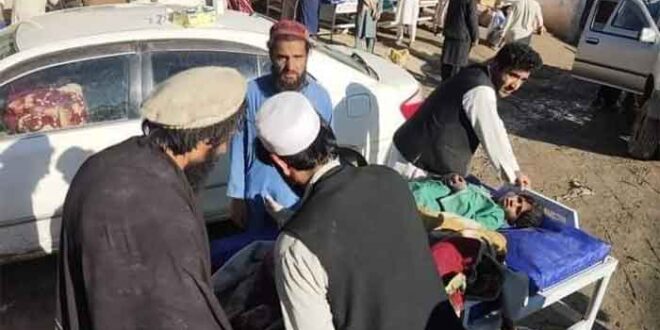An earthquake which has been called the deadliest in two decades hit Afghanistan on June 22. The latest reports indicate that nearly 1000 people have died and the death toll is likely to increase as more reports are received from remote, cut-off areas. It is feared that crucial rescue help needed in the first 24 hours or so may not reach many people buried under rubble. Rescue effort has also been hampered by heavy rain in several areas, according to initial reports. Some reports have already quoted survivors as stating that entire villages have been devastated.
In assessing the situation three factors should be considered. Firstly, Afghanistan has already been in the middle of a very serious humanitarian crisis for quite some time. There have been serious food shortages. It is likely that there will be serious shortages of rescue equipment, medical supplies and subsequently of food for victims.
Secondly many houses were already damaged in conflicts and bombings and house re-construction and repairs have badly suffered in conditions of poverty and conflict. There are a very large number of displaced persons. The heavy use of explosives in conflict has made houses more vulnerable to collapse and created conditions for more landslides to be triggered, blocking roads and making rescue effort in remote areas even more difficult.
This little child is probably the only remaining alive member of her family. Locals say they couldn’t find any alive member of her family. She looks like a 3 years old baby.#Afghanistan #AfghanistanEarthquake pic.twitter.com/6mJdiuvOCS
— Sayed Ziarmal Hashemi (@ziarmal1992) June 22, 2022Thirdly, there is the question of ensuring that certain minorities which have been experiencing discrimination and hostility in recent times do not face any discrimination in rescue and rehabilitation effort.
Keeping in view all these factors there is a strong case for rushing more international aid to Afghanistan. This humanitarian aid effort should be well planned and implemented with the help and involvement of people of affected areas, including representatives of women and minorities, as it is only with the involvement of local people that this effort can increase in such difficult conditions. Neighboring countries like Pakistan and Iran will have an important role both in sending direct help as well as in facilitating the transport of relief supplies to the landlocked country. India and other countries should help with food and medical supplies with Pakistan and Iran facilitating quick transport.
To ensure increased availability of funds for the relief effort, it is time for the USA to re-divert to Afghanistan 3.5 billion dollars of ‘stolen’ money. In February while unfreezing 7 billion dollars of Afghanistan assets, the USA had diverted 3.5 billion dollars to help 9/11 victims. It was widely stated at that time that while the 9/11 tragedy victims deserve all the help they can get, this money should come from US sources and should not be taken from the very limited resources of one of the poorest countries in the world . Now with this highly destructive earthquake, the case for the USA to return this sum of 3.5 billion dollars to Afghanistan has become even stronger. There should be an international campaign till this money is returned to Afghanistan for helping the earthquake victim households and other people, particularly women and children, most in need. For comparison, the sum of 3.5 billion dollars is very small in relation to the 800 billion dollars the USA spends annually on military budget and the 250 billion dollars spent in the USA annually on liquor. On the other hand, in terms of the resources of Afghanistan, this amount of 3.5 billion dollars means a lot to this country in the middle of a very serious humanitarian crisis and the USA should not lose any time in returning this amount to where it belongs and where it is so badly needed in these difficult times.
 Eurasia Press & News
Eurasia Press & News



